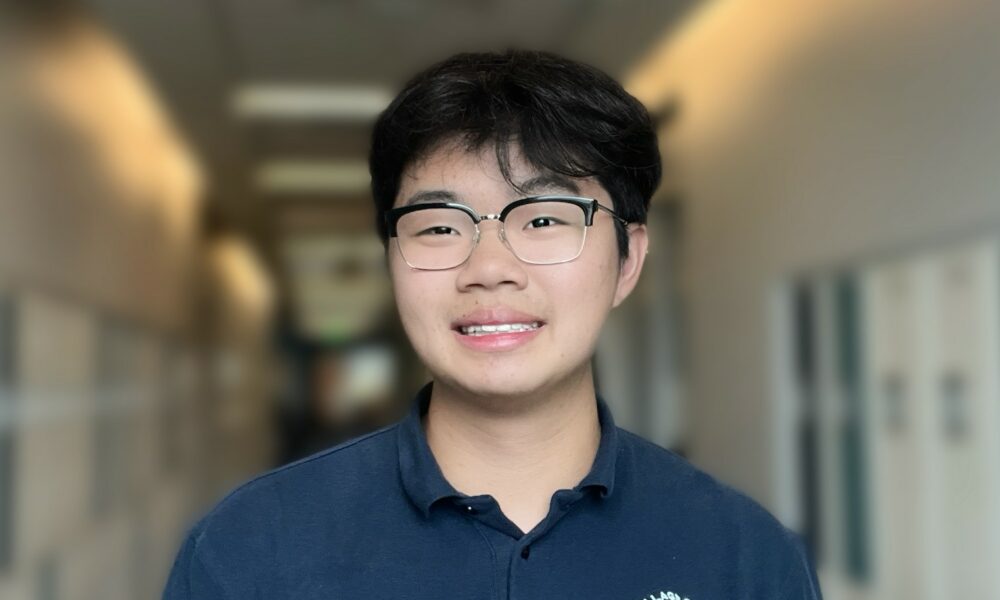

Today we’d like to introduce you to Tommy Wan.
Hi Tommy, so excited to have you on the platform. So before we get into questions about your work-life, maybe you can bring our readers up to speed on your story and how you got to where you are today?
My name is Tommy Wan and I am entering my studies at the University of Texas at Austin. As a first-generation Asian American student, I was always empowered by the ethics and morals of my parents. I grew up in a family where cultural tradition is an emphasis. One night, as my mom glazed over her braised pork belly with a final sprinkle of rice wine, she asks me to come down to the dining table to talk to me about what being a good person looks like. It was these moments that helped me develop the conviction, morals, and values that I have today—ultimately leading to my work in civic engagement.
I grew up in Southwest Houston in Alief, bordering neighborhoods of historic Piney Point, Tanglewilde, and the Westside. My childhood is deeply rooted within the rich cultural heritage of the Viet, Chinese, Latinx, and African communities. As I experienced these cultures, traditions, and practices during my attendance at Outley Elementary, Mahanay Elementary, Youthblood Intermediate, and currently the Village School, I realized that youth voices were of utmost importance. But, it was also one that is underrepresented in political thought and local legislation. The people within the community, the friends I’ve made in the district, and the opportunities provided have greatly informed me how local issues impact our neighbors—especially youth.
I began my civic journey at the outset of my high school career. Perpetuated and powered by youth organizers within the community, I am proud to know that my youthful perspective has an impact on local policy, advocacy, and when voting. When I began understanding the workings of local government through Mi Familia Vota’s environmental fellowship program, I was appalled by the lack of policy serving underfunded communities—neighborhoods plagued by superfund sites, concrete batches, and unwarranted pollution. What also inspired me was the power of youth in turning the tide of local decisions. It was at this moment that I realized that in order to empower youth voices, we must work to show our generation that our voice DOES matter.
During the summer of 2021, through my internship with Council Member Tiffany D. Thomas, who represents Houston’s District F, a flame to serve the people ignited within. I rarely hear youth talking about local issues—issues that impact my peers, their parents, and the community surrounding them. When I brought up environmentalism to the Chinese-American community, I was faced with the notion that “Who cares about the climate? And, an Asian would never enough votes in America.” The hidden, tense, disquiet reflected in the underserved and underrepresented neighborhoods of Houston prove otherwise. These remarks from my own community meant that environmental issues were not brought to light yet. Practically woven into daily life, the immense flooding, uncontrollable pollution, and the myriad of environmental injustices mean that Houston is on the front lines of the climate crisis. Through this, I also recognized that the youth will be the next generation of policymakers, influencers, and civically-minded citizens. If we can instill values of civic engagement in my peers today, we will flourish into a successful system within Houston as in the years past—one which preserves access to democracy.
I hope on advancing my education on policy and widen my perspectives as I enter college. I plan on studying civil engineering and government at the University of Texas at Austin as a Plan II student. The combination of majors is through my desire to uncover the intersection of engineering and public policy at a city level. One summer, as I walked the West Bellfort road reconstruction site with the engineering team at Houston Public Works, I was in awe of the intricacies of the waterlines, cable fiber optics, and sewer systems. I’m sure Nancy, the lead engineer, was overwhelmed with my inquiries. My heart lies in the fundamentals of engineering, a breadth of exciting, pragmatic solutions—a field where research intersects with practicality. On the other hand, with the 87th legislative session in full swing at the Texas Capitol, I was empowered by such tenacity in law-making. However, with legislation dealing with infrastructure, transportation, and environmentalism, there are few who are knowledgeable about the science behind these policies. My goal at UT is to discover and learn from, a microcosm of the brightest minds and interests; To find people who will talk to me about their stories to find real perspectives, authentic narratives, and their innate culture.
Currently, I hope to pursue my undergraduate degree, followed by a master’s in public policy. From there, I hope to take a couple of gap years to become a high school teacher, followed by legal education. Ultimately, I hope to work in law or the government—one where I can give back to a community that gave me so much. As we like to say, “The westside is the best side.”
For me, there is a simple doctrine: To know that I have the ability to command the stage of discourse within the City of Houston empowers me. To know that I have a voice in turning the tide within societies’ status quo is inspiring. Much like how a single seed can turn into a forest, a single (civically engaged) heart has the ability to transform a nation.
Thanks – so what else should our readers know about your work and what you’re currently focused on?
My focus is youth civic engagement. Specifically, advocacy within underrepresented student populations in Southwest Houston. One of the best ways to begin in this prospect is voter registration drives. I’ve been able to work with different organizations such as When We All Vote, Mi Familia Vota, and OCA Greater Houston to empower students to register to vote.
As part of my work with OCA Greater Houston, we are in contact with students from schools and their civic engagement clubs in the Houston area. One of the main components the Youth Organizing team worked on was our YELS (Young Emerging Leaders & Scholars) monthly workshops. These workshops are initiated by students or student organizations where they discuss an issue of their choosing. Examples have included AAPI Violence and Discrimination, Environmental Racism, Professionalism as a person of color, and urban walkability. As an intern, we guided the students through organizing their individual workshops and provide support and structure to the process.
As a part of my internship with Council Member Tiffany D. Thomas, we organized a youth conference on environmental justice. It was apparent that many constituents had concerns about Chromium-6, lead, in the water supply. Many also mentioned illegal dumping in hotspots, along with a lack of financial aid following Texas’ Winter Storm Uri. However, I rarely hear youth talking about these local issues, those that impact my peers, their parents, and the community surrounding them. This particular year, through guiding a nine-member steering committee from multiple high schools around the Houston area, we brought community voices together to create critical dialogue surrounding environmental justice. After hearing from Fifth Ward residents, I realized that the intersectionalities of environmental challenges were not isolated. These issues extend to all ages, persons, and communities.
I also serve on Mayor Turner’s Youth Council, where we are hoping to empower students to speak up regarding public safety. As a part of this plan, the council is organizing a town hall with Mayor Turner and Chief Finner on crime. Through my work with Houston Youth Climate Strike, we have been able to advocate for indigenous communities, while advocating for the reduction of fossil fuel usage by corporations—including publishing opinion pieces through the Houston Chronicle.
Are there any important lessons you’ve learned that you can share with us?
Martin Luther King, Jr. said that “The arc of the moral universe is long, but it bends toward justice.” I believe that one lesson that comes out of this quote is the fact of proactive action. Grassroots organizing must be established so that we as a society can move towards an equitable outlook on issues such as housing, public safety, and infrastructure.
I am currently working with several coalitions and elected officials in proposing to Alief Independent School District to hire a civic engagement coordinator. Under the department of family and community engagement, this position is non-partisan and its responsibilities would include promoting voter education and civic engagement (K-12), voter registration in high schools, student opportunity creation, career-building workshops, and legal compliance with legislature passed bills and the Texas Election Code. As proven by Fort Bend ISD, this position has not only enabled grant funding but has allowed all schools to be in election compliance. Most importantly, the students are inspired to lead and participate civically within their communities.
As I am working on proposing this policy to Alief ISD, I am reminded that this work is hard. I am young. But I am empowered, inspired, and ready to hit the ground running to get this work done. I am ready to empower the generation of high school leaders so that we can continue this work for generations to come. The change will come if we work together in tandem to better the lives of Houstonians; Not only through civic engagement, but through holistic housing, voting rights, gun violence prevention, racial justice, environmental justice, and education equity.
Contact Info:
- Instagram: https://www.instagram.com/tommycwan/
- Twitter: https://twitter.com/tommycwan
- Youtube: https://www.youtube.com/channel/UCIZEco6Lk6AfISoXTyCellA
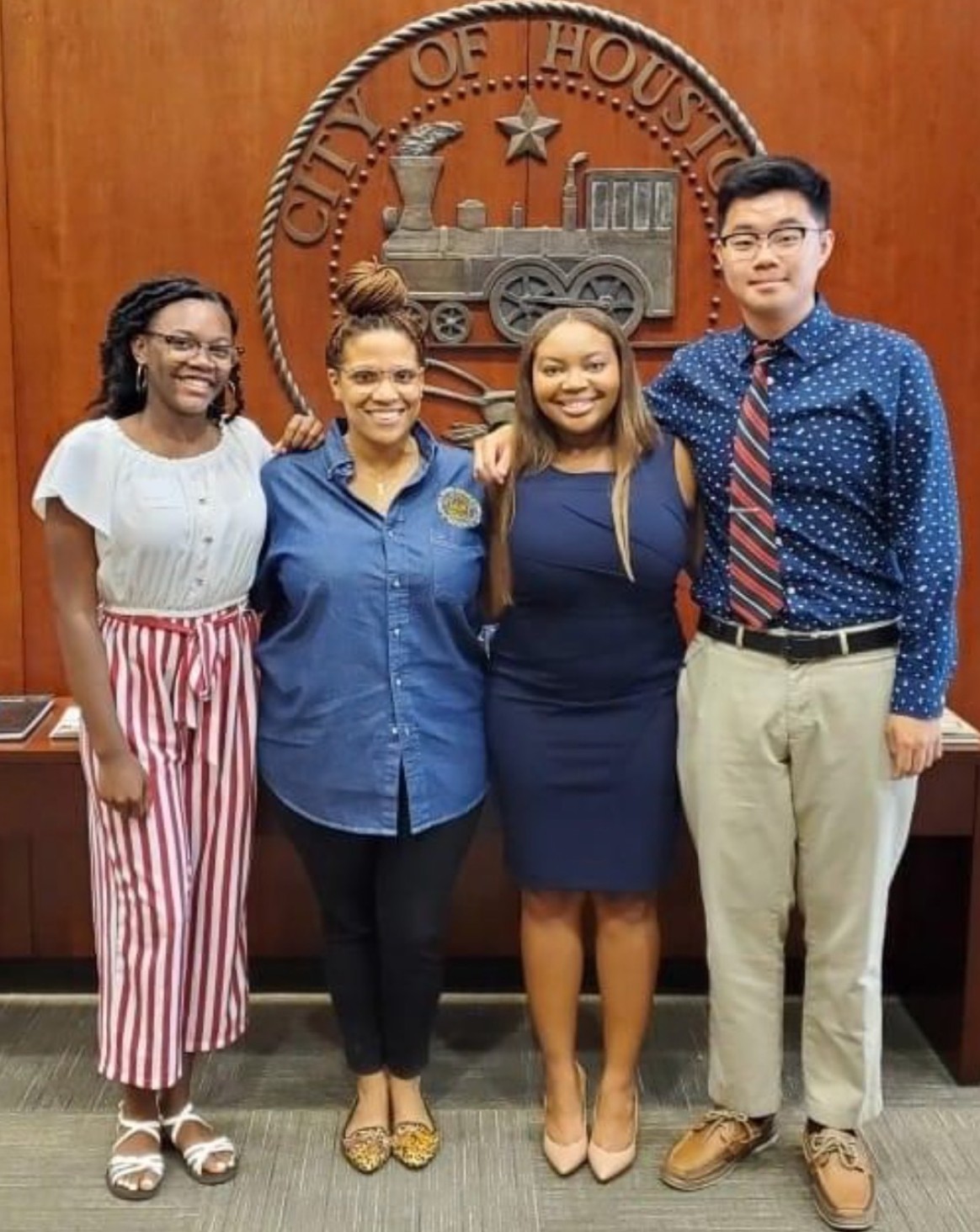
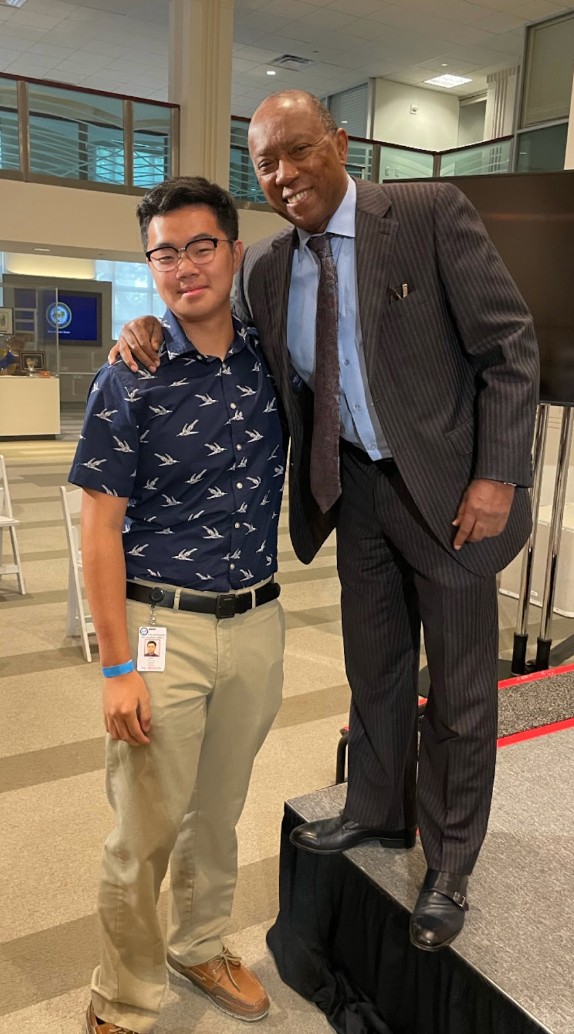
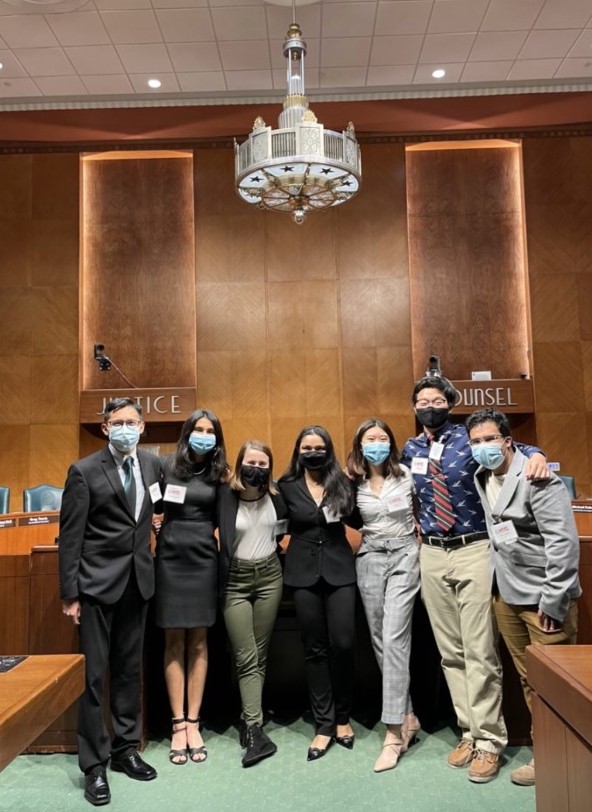
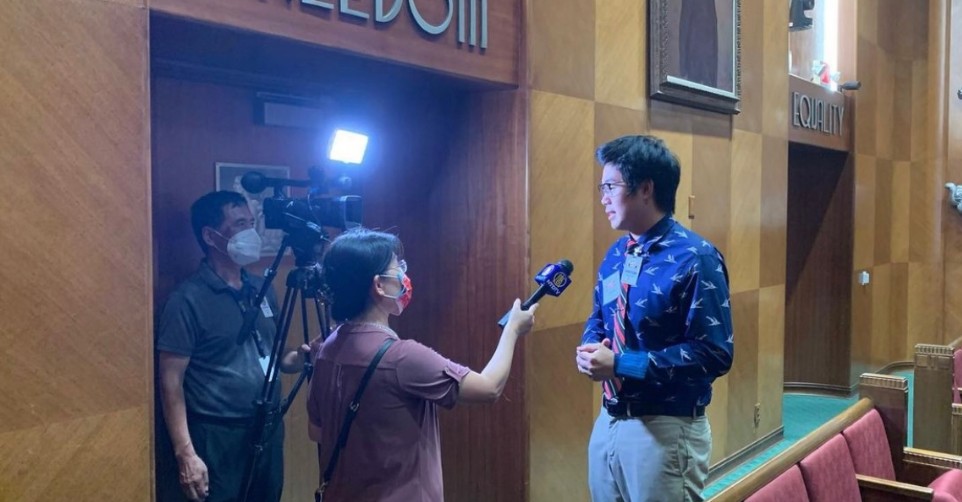
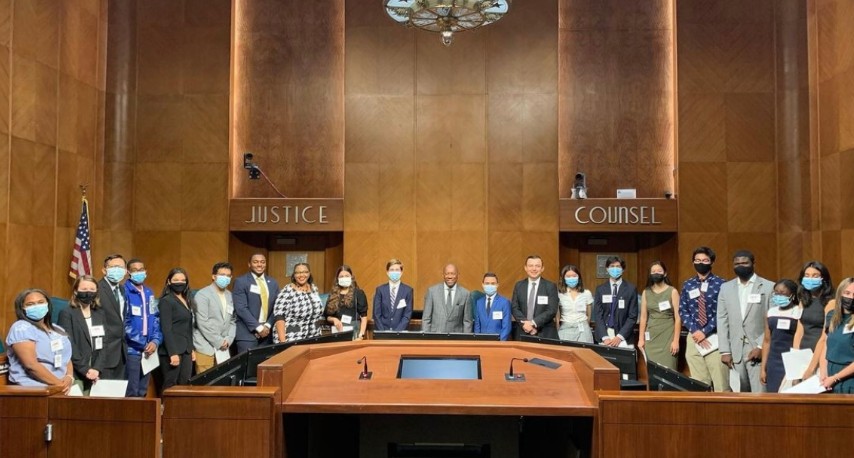
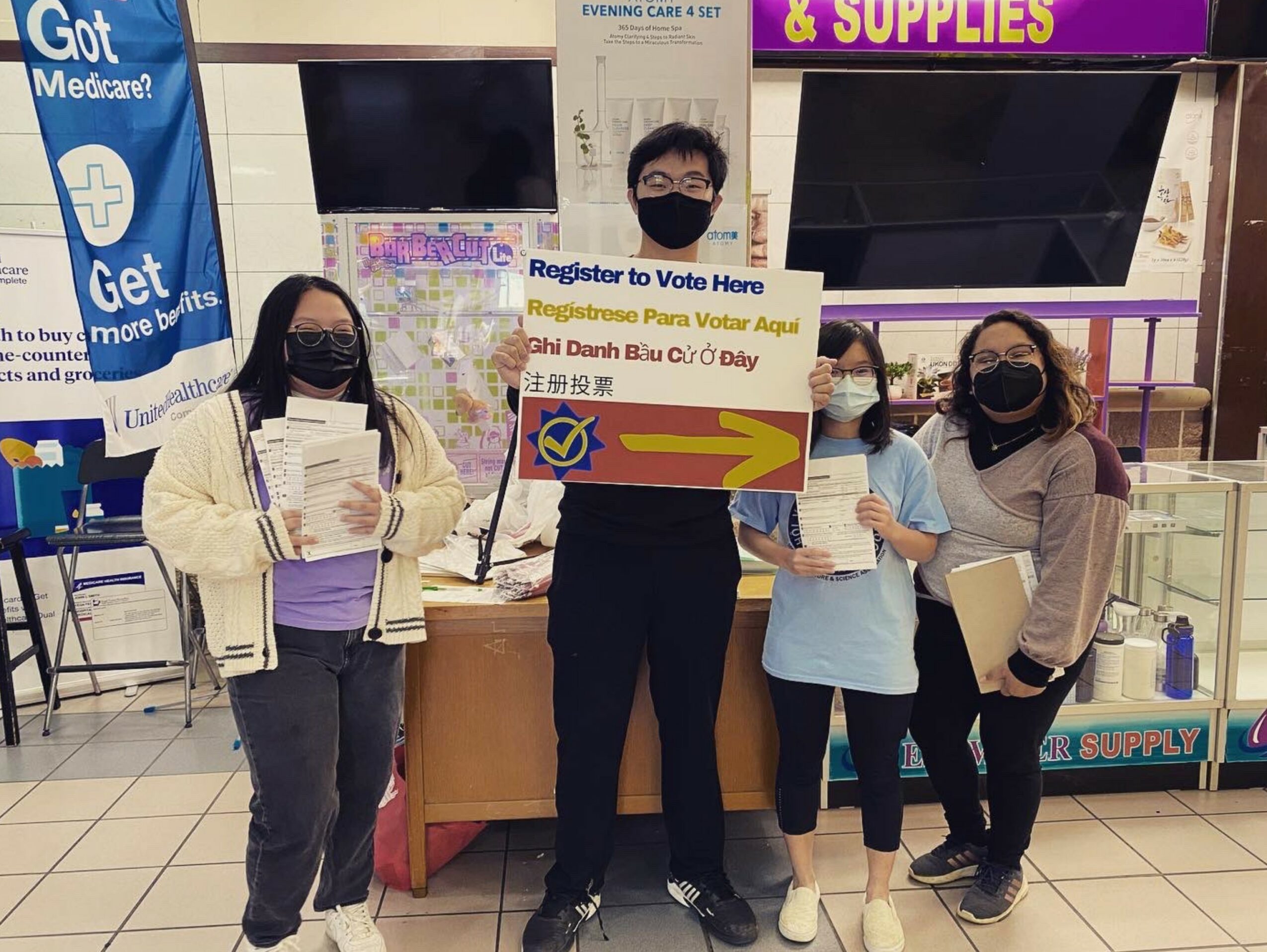
Image Credits
Hai-Van Hoang
Elaine Ho










